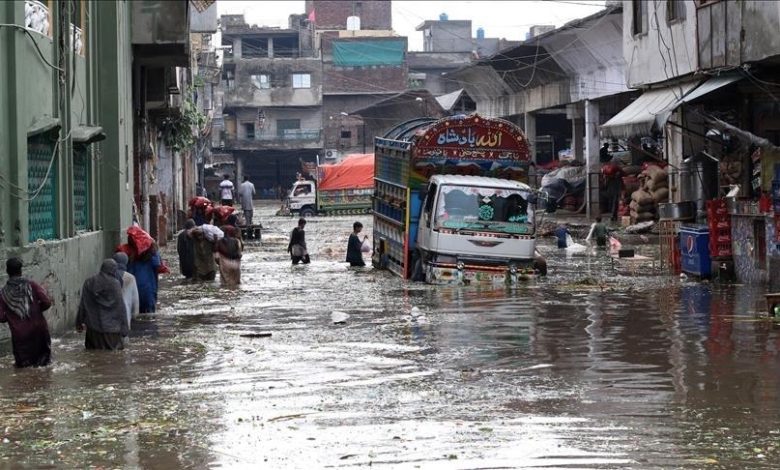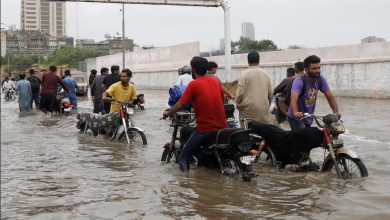Flood Situation Across Pakistan Due to Heavy Rains
The melting glaciers have caused flooding in seasonal streams in Rahimabad, Gilgit, resulting in the submersion of agricultural lands: Report

Karachi, Gilgit, Chitral: Heavy rainfall across various cities in Pakistan has resulted in severe flooding conditions. Several villages in Gilgit-Baltistan, Balochistan, and Sindh are inundated, and hundreds of acres of crops have been severely damaged. The melting glaciers have caused flooding in seasonal streams in Rahimabad, Gilgit, resulting in the submersion of agricultural lands.
In the district of Astor, particularly at the location of Pershing, lightning strikes and subsequent flooding have damaged many houses, crops, and orchards, and disrupted the electricity supply. Rescue operations are ongoing in the affected villages.
In Gilgit, the water levels in the Juglot-Guru stream have normalized after severe flooding. However, flooding in the Rahimabad stream temporarily halted river flow, causing submersion of low-lying areas and agricultural lands. The flooding in the Hunza Nagar River has accelerated riverbank erosion in the suburban area of Faizabad. Similarly, the Chitral River has experienced high-level flooding due to glacier melt. Relief efforts are underway, including the establishment of a tent city for victims in Buni and the construction of a temporary bridge to replace the damaged one.
In Sindh, efforts are underway to repair a 150-foot breach in the Rohri Canal, with expectations to complete the work today. The breach in the Bambli Minor in the Sukkur district has been repaired. Meanwhile, the rain in the Kirthar mountain range has caused flooding in the Gaj, Sol, and Nili Hili streams, affecting five union councils in the Johi Tehsil. The communication with more than 65 villages in Faridabad has been disrupted. Water from the rains has entered the Manchar Lake, raising its water level, and authorities plan to release the excess water into the Indus River.
In Khairpur, heavy rains have damaged cotton, date palms, and other crops. The protective embankment near Nasir Faqir Jalalani was breached due to the pressure from floodwaters.
In Balochistan, monsoon rains have caused flooding in over 25 districts, with breaches in the Shahi Wah Canal and the Nari River bank inundating multiple areas and collapsing mud houses. The ongoing monsoon rains, which intensified in August, have caused significant damage in areas including Bolan, Naseerabad, Jaffarabad, and Soibatpur.
Flooding in Jhal Magsi, Kalat, Khuzdar, Sibi, Kohlu, Dera Bugti, Sherani, and Ziarat has affected low-lying areas, disrupted roads, and led to house collapses, displacing residents. The provincial government claims preparedness for monsoon rains and has distributed supplies across districts to handle potential major flooding situations.
According to the Provincial Disaster Management Authority (PDMA), recent monsoon events in Balochistan have resulted in 15 fatalities and 35 injuries. Over 100 homes have been completely destroyed, and 180 homes have suffered partial damage. Train services on the Sibi-Harnai railway section have been suspended for the past 15 days due to the rains.
The Meteorological Department forecasts that the monsoon rains in Balochistan are expected to continue through September.
Official Updates: For further details, you can check the [National Disaster Management Authority (NDMA) of Pakistan](https://www.ndma.gov.pk) and the [Pakistan Meteorological Department (PMD)](http://www.pmd.gov.pk) for the latest updates on the flooding situation and weather forecasts.




